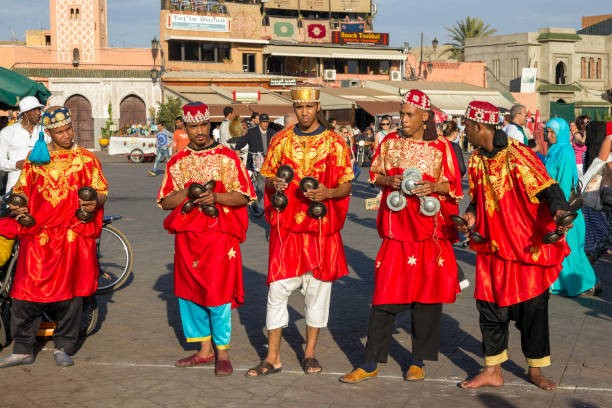The quest for higher Education, scientific research and innovation in Africa can never be over-emphasized. The good news is; Morocco and the European Union (EU) have embarked on a new chapter in their educational collaboration with the signing of a landmark partnership agreement.
The agreement, signed by EU Ambassador Patricia Llombart Cussac and Moroccan Minister for Higher Education Abdellatif Miraoui, aligns with Morocco’s ‘National Plan for the Acceleration and Transformation of the Higher Education, Scientific Research and Innovation Ecosystem’ (PACTE ESRI 2030, a significant step towards fostering knowledge exchange, research collaboration, and student mobility between the two regions.
As a nation, Morocco boasts a rich academic tradition, with universities dating back to the 9th century. According to the World Bank, the country’s gross enrollment ratio in tertiary education has steadily increased in recent years, reaching 38% in 2021. This growth reflects Morocco’s commitment to expanding access to higher education and equipping its youth with the skills required for a knowledge-based economy. Also, a 2023 report by the UNESCO Institute for Statistics revealed that Morocco spends over 5% of its GDP on education, highlighting the country’s dedication to this crucial sector.
However, challenges still exist. Universities grapple with issues such as limited research funding, a shortage of qualified faculty, and a need for curriculum modernization to align with evolving global demands.
The new EU-Morocco partnership aims to address these challenges and unlock the full potential of Morocco’s higher education sector. Here are some key areas of focus:
Joint Research Initiatives: The partnership will encourage collaboration between Moroccan and European universities on research projects of mutual interest. This cross-pollination of knowledge will stimulate innovation and address global challenges in areas like climate change, renewable energy, and sustainable development. “By working together on joint research projects, Moroccan and European researchers can contribute to solving some of the world’s most pressing challenges,” says Mariya Gabriel, EU Commissioner for Innovation, Research, Culture, Education and Youth.
Student and Faculty Mobility: The agreement fosters increased student and faculty exchange programs, allowing Moroccan students to gain valuable experience studying in Europe, and European scholars to share their expertise with Moroccan universities. This exchange of knowledge and perspectives will enrich the academic environment and prepare graduates for the globalized job market.
Curriculum Modernization: The partnership emphasizes the importance of aligning Moroccan university curriculums with European standards and industry demands. This will equip graduates with the necessary skills and qualifications to compete effectively in a globalized economy.
Capacity Building: The EU will provide support for capacity building initiatives within Moroccan universities. This includes faculty training programs, the development of research infrastructure, and the modernization of teaching methodologies.
The EU-Morocco Higher Education Partnership promises benefits for both regions:
For Morocco: Increased access to research funding, improved faculty expertise, modernized curriculums, and a more globally competitive workforce.
For the EU: Enhanced research collaborations, access to a highly skilled Moroccan workforce, and strengthened cultural and educational ties with a key North African partner. A 2022 study by the European Commission’s Joint Research Centre found that increased student mobility within the EU contributes over €16 billion annually to the European economy through knowledge transfer and innovation.
READ ALSO: Press Release: Arc. Sonny Echono&’s Vision for Africa’s Greatness Through Education and Entrepreneurship
While the partnership holds significant promise, some challenges need to be addressed. Language barriers can hinder communication and collaboration between Moroccan and European institutions. Promoting multilingualism in universities is crucial for maximizing partnership potential. Simplifying visa procedures for student and faculty exchange programs is essential for smooth mobility. Efforts should be made to ensure equitable access for students from diverse backgrounds within Morocco.
The success of the EU-Morocco Higher Education Partnership hinges on a shared commitment from both sides. By fostering a collaborative environment, addressing existing challenges, and promoting mutual understanding, this partnership has the potential to redefine the educational landscape in Morocco and contribute to a more skilled and interconnected world. As Audrey Azoulay, Director-General of UNESCO, aptly stated, “Education is the most powerful weapon which you can use to change the world.” The EU-Morocco Higher Education Partnership serves as a powerful tool for positive change, paving the way for a future where knowledge is shared, innovation flourishes, and educational opportunities empower both Moroccan and European youth.


